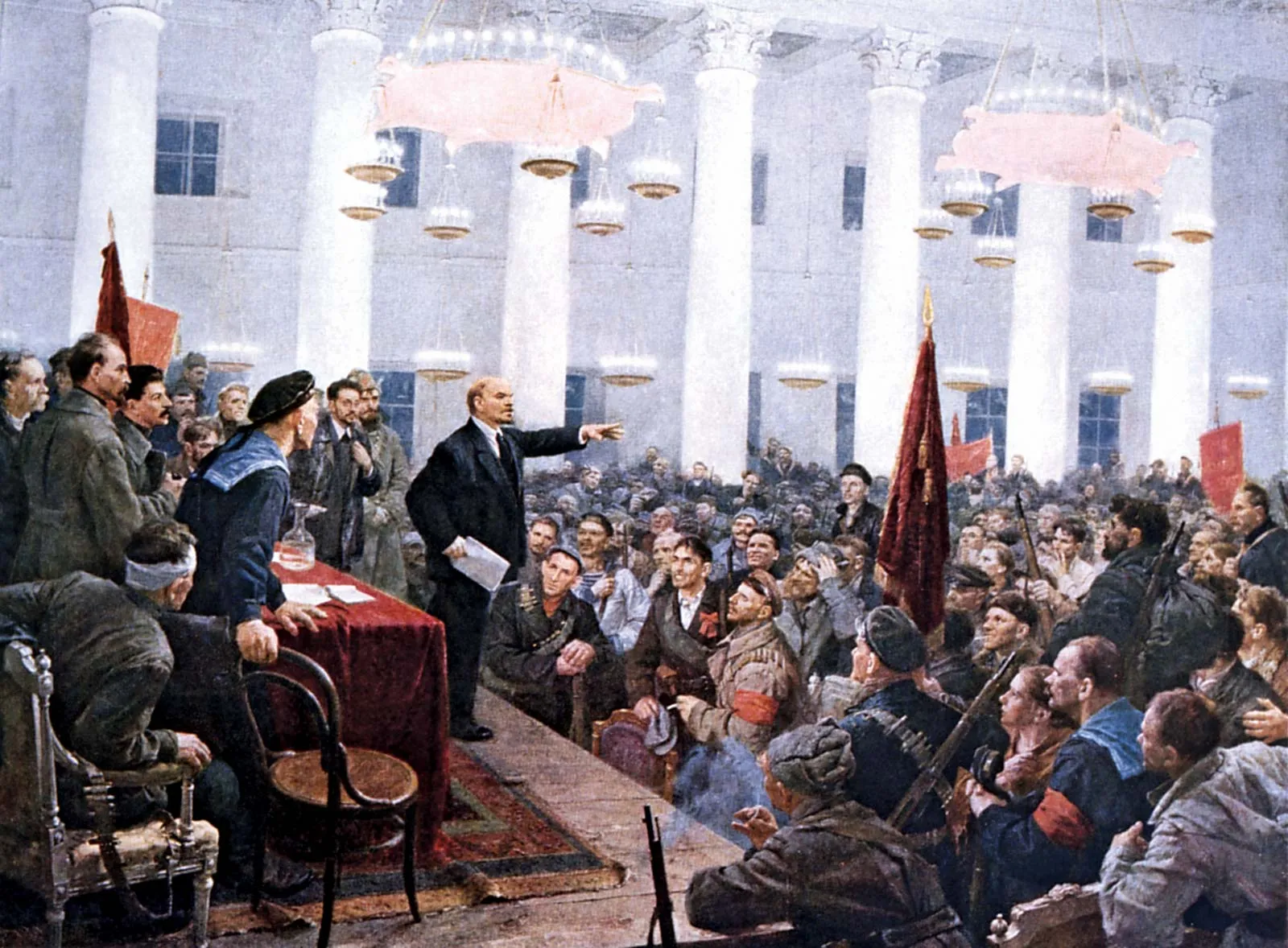
War Communism
Modern History (Year 12) - Bolsheviks in Power
Ben Whitten
Why did Vladimir Lenin adopt War Communism?
Whilst Trotsky managed the Civil War, Lenin concentrated on building and consolidating the Bolshevik state – Lenin still had part in the Civil War and Trotsky and himself took strategic decisions together and Trotsky needed Lenin’s support – e.g., over the use of former tsarist officers in army
Lenin took charge of day-to-day business of the Sovnarkom and the problems he faced were formidable – Chief amongst these was the rapid deterioration of the economy in spring of 1918
To ensure survival following October Revolution, Bolsheviks had handed over control of the land to the peasants and control of the factories to the workers’ committees proved incapable of running the factories (economic collapse was already well underway too)
This was compounded by acute shortages of raw materials created by Civil War
Industrial output, particularly consumer goods, shrank in Bolshevik-held central area – shortage of goods led to soaring price inflation and value of the rouble collapsed
Peasants wouldn’t supply food to cities if there were no goods for which food could be exchanged and paper money was worthless – rich wheat areas of Ukraine were outside Bolshevik control
Food shortages worsened as early as February 1918 – bread ration in Petrograd reached an all-time low of 50 grams per person per day – this created food riots and workers started to flee from cities, leaving factories short of labour – the situation was desperate
Lenin was fighting both economic and social problems as he was confronted by the full onslaught of the Civil War – the Bolsheviks were now fighting for their lives
The name given to the policies Lenin adopted from 1918 to 1921 is War Communism
Features of War Communism
Grain requisitioning
Bolsheviks had been sending units of Red guard and soldiers out into the countryside to find grain for the hard-pressed cities
In May 1918, a Food Supplies Dictatorship was set up to establish the forcible requisitioning of grain as the standard policy – peasants were resentful and resistant
Banning of private trade
All private trade and manufacture were banned; however, the state trading organisation was extremely chaotic, and industry was simply not producing enough consumer goods
An enormous black market developed, without which most people could not have survived
Nationalisation of industry
All industry was brought under state control and administered by the Supreme Council of National Economy (Vesenkha)
Workers’ committees were replaced by single managers reporting to central authorities – these were often the old bourgeois managers now called ‘specialists’
This was the only way to stop the chaos caused by the factory workers’ committees who had voted themselves huge pay rises, intimidated management and stolen materials for illegal goods
Not all workers were against nationalisation as they were desperate to keep their jobs
Labour discipline
Discipline was brought back to the workplace – there were fines for lateness and absenteeism – internal passports were introduced to stop people fleeing to the countryside
Piece-work rates brought back along with bonuses and a workbook needed to get rations
Rationing
A class-based system of rationing was introduced
Labour force was given priority along with Red Army soldiers – smaller rations were given to civil servants and professional people such as doctors
The smallest rations, barely enough to live on, were given to the middle classes – or as they were now called, the ‘former people’
What was life like in Bolshevik cities under War Communism?
Life in Russia between 1981 and 1921 was a matter of survival – less than a third of the urban diet came from the state, whilst the rest came from the black market
“Bag-men” travelled between villages and cities selling their produce
The urban workers eked out their rations by selling or exchanging handmade or stolen goods for food – many travelled into the countryside with goods to barter for food – this became known as ‘cigarette lighterism’ since cigarette lighters featured in products made, along with shoe soles made from conveyor belts, penknives, nails and ploughs made from iron bars
The movement of people created chaos in factories in 1918 as at any one time a high percentage of workers might be absent – the railway system was choked with bag-men moving between cities
Bolsheviks tried to stamp out the free market under War Communism, but it was futile – Cheka raided trains to stop bag-men travelling and raided markets where goods were sold
However, they could not be everywhere at once and it was easy to bribe officials